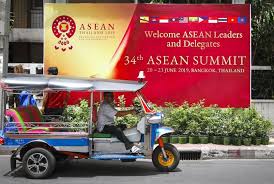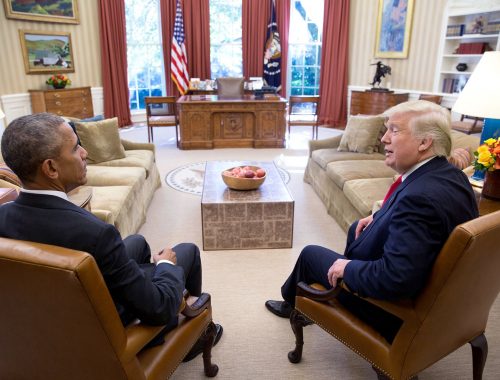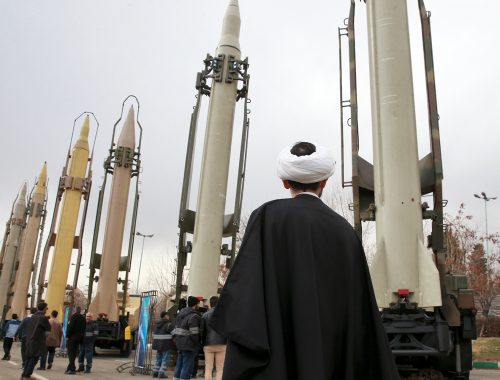Leaders from 16 Asia-Pacific nations including Japan, China and India have effectively given up on achieving the goal of finalising their free trade deal by the end of this year, according to a joint statement issued on Monday.
In the statement released after their summit, the leaders of the Regional Comprehensive Economic Partnership (RCEP) pledged to sign an agreement on creating the world’s largest free trade area in 2020, indicating the countries will continue their negotiations.
“We noted 15 RCEP Participating Countries have concluded text-based negotiations for all 20 chapters and essentially all their market access issues; and tasked legal scrubbing by them to commence for signing in 2020,” the statement said.
But “India has significant outstanding issues, which remain unsolved,” it added, suggesting that the South Asian nation and other RCEP members failed to reach agreement in key fields such as tariffs.
India is believed to be reluctant to lower its trade barriers, as the country claims that it has suffered massive and chronic trade deficits with China for many years.
If the free trade area — which would cover half of the world’s population — is put into practice, trade and investment activities among RCEP nations would intensify on the back of measures like the elimination and reduction of tariffs.
In India, however, there is concern that the deal would result in an influx of cheap agricultural and industrial products, including smartphones, from China, further increasing the trade surplus of the world’s second-biggest economy, sources said.
Covering a third of the world economy, RCEP has a history of missed deadlines with varying degrees of ambition among the 16 members. Talks began in 2013 with the initial goal of wrapping them up in 2015.
RCEP brings together Australia, China, India, Japan, South Korea and New Zealand, as well as the Asean states — Brunei, Cambodia, Indonesia, Laos, Malaysia, Myanmar, the Philippines, Singapore, Thailand and Vietnam.
ASEAN CIVIL groups and representatives of people’s organisations will once again be denied an interface meeting with leaders during the 34th summit in Bangkok this weekend, as they failed to convene a parallel meeting, Asean officials and organisers said.
The Asean Civil Society and People Forum (ACSC/APF) was supposed to hold their meeting in the middle of this month to finalise issues and demands to be exchanged with leaders during the summit. The meeting was delayed until September.
Though they will not be permitted to discuss issues with leaders of Asean nations, the groups may be allowed to meet with senior officials of Asean, Foreign Ministry director-general of Asean Affairs, Suriya Chindawongse, said.
Representatives of three groups – Asean Inter-Parliamentary Assembly (AIPA), Asean Youth, and Asean Business Advisory Council (ABAC) – will meet with leaders on June 22.
The ACSC/APF has not managed to have an interface dialogue with leaders for three consecutive years. The last meeting between the civil society groups and Asean leaders took place during Malaysia’s chairmanship in 2015. At last year’s Asean meeting with Singapore as chair, a meeting with the People Forum was restricted financially and isolated from the leaders’ summit.
As the host country, Thailand is tasked with initiating the interface meetings between the civil society sector and leaders. It would try its best to arrange such a meeting during another summit in November, a Thai Foreign Ministry official said on condition of anonymity.
Members of an Explosive Ordnance Disposal squad install a bomb detector gate at the venue of the 34th ASEAN Summit in Bangkok, Thailand, 19 June 2019. // EPA-EFE PHOTO
Chalida Tajaroensak, director of the People Empower Foundation (PEF), one of the 2019 ACSC/APF steering committee members, said the failure this time reflected the “controlled partnership” preferences of leaders, in which they decided to instead meet with self-appointed representatives and business groups.
Regarding the summit’s refusal to meet with the group, Chalida said their organising committee had submitted the names of representatives to the Senior Officials Meeting for the Asean Socio-Cultural Community.
She said the member states failed to reach a consensus to meet with the civil society organisations (CSOs). Only the delegates of Thailand, Malaysia and Indonesia supported the proposed interface, while two countries rejected it and the rest were silent.
Still, with another opportunity still possible at the second summit in November, Chalida said the CSOs need to rethink their engagement strategy
“The CSOs must review how to be a partner with the states, whether street protests to pressure, or [alternatively] diplomacy, would work to effectively convey the people’s demands to the governments,” Chalida said. “In order to bridge the barrier, they must shift to people’s diplomacy.”
There are different degrees of support and confrontation between the states and CSOs in the many Asean countries, she said. Regional cross-cutting talks among the CSOs are needed in order to craft a strategy to deal with the states on the Asean stage.
There is a wide spectrum among Asean CSOs in terms of their agenda, stance and affiliations. Each state has its own way of dealing with the civil sector, including implementing registration to establish its own civil groups, known as government-organised non-governmental organisation.
The national flag of Myanmar in front of a large poster welcoming ASEAN leaders to the 34th ASEAN Summit in Bangkok, Thailand, 19 June 2019. // EPA-EFE PHOTORepresentatives of three groups – Debby Stohard from the Alternative Asean Network for Burma, an NGO working on democracy issues in Myanmar, criticised the state’s exclusion of its citizens. She noted that people in Cambodia, Vietnam and other countries are judicially and physically harassed when they speak out about unsustainable development or express opinions on the internet.
“We ask Asean governments and leaders: please check the dictionary for the meaning of ‘partnership’ – because they have not been behaving in partnership with the citizens of this region”, said Stohard in a public panel.
Rachel Arinii Judhistari, Asean programme manager of Forum-Asia, one of the ACSC/APF steering committee members, called for Asean nations to truly respect the rights of people in responding to its “people-centred” principle.
“This year the AICHR [Asean Intergovernmental Commission on Human Rights] will turn 10. Use this anniversary to advance a ‘people-centred’ Asean, where the rights of the people of Southeast Asia will be respected. “Asean aspires to be people-centred, as it has stated in its Asean 2025 blueprint. However, in reality, many CSOs are facing curtailment of civic space in their countries, which is contributing to the silencing of dissenting voices.”




